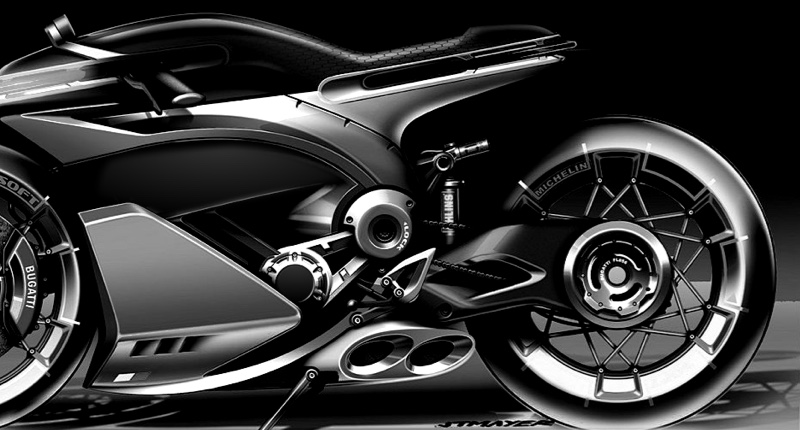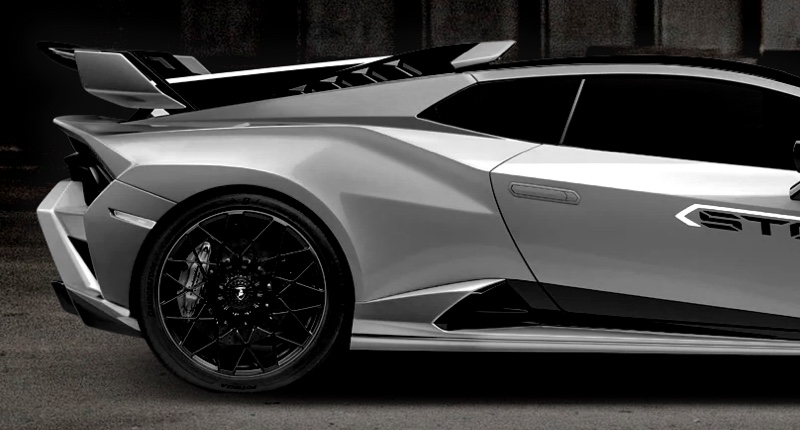Unveiling Carbon Fiber's Vital Role in Race Car Construction | Supreem Carbon
The Essential Role of Carbon Fiber in Race Car Construction
In the world of motorsports, every element of a race car is meticulously designed and engineered to achieve optimal performance. Among the multitude of materials used in race car construction, carbon fiber stands out as a pivotal component. But why is carbon fiber so crucial in building race cars? In this article, we will delve into the unique properties of carbon fiber, answer frequently asked questions, and explore its significance in the racing industry.
What Makes Carbon Fiber So Strong?
Carbon fiber is renowned for its exceptional strength-to-weight ratio. It is composed of thin strands of carbon, with each strand being just a few micrometers in diameter. These strands are twisted together to form a yarn, which can be woven into fabric. When combined with a resin, this fabric results in a composite material that is not only lightweight but also incredibly strong and stiff.
How Does Carbon Fiber Improve Race Car Performance?
The lightweight nature of carbon fiber is a significant advantage for race cars. By reducing the car's weight, engineers can enhance speed, acceleration, and efficiency. This reduction directly impacts the vehicle's power-to-weight ratio, improving performance on the track. The stiffness provided by carbon fiber ensures that the car remains aerodynamically optimal at high speeds, contributing further to performance.
Why Is Aerodynamics Important in Race Cars?
Aerodynamics plays a critical role in race car performance, affecting speed, grip, and fuel efficiency. Carbon fiber allows for precise shaping and design, which contributes to optimal aerodynamic performance. With carbon fiber, engineers can create complex shapes that reduce drag and increase downforce, providing better control and stability during a race.
Is Carbon Fiber Durable for Race Car Use?
Despite its lightweight nature, carbon fiber is highly durable. It is resistant to fatigue and is capable of withstanding high stress, making it ideal for the rigors of racing. The material can absorb energy in a crash, providing an added safety benefit by protecting the driver and minimizing damage to the car's chassis.
How Is Carbon Fiber Cost-Effective for Racing Teams?
While carbon fiber is more expensive than traditional materials like aluminum and steel, its benefits often justify the cost for racing teams. The reduction in fuel consumption due to a lighter car, coupled with improved performance, can lead to cost savings in the long run. Additionally, its durability can result in less frequent repairs and maintenance, further offsetting its initial expense.
Conclusion
Carbon fiber has revolutionized race car construction, offering a combination of strength, lightweight, and aerodynamic flexibility that is unmatched by other materials. Its use in motorsports is a testament to its effectiveness and necessity in enhancing performance, safety, and efficiency. As racing technology continues to advance, the role of carbon fiber will undoubtedly grow, securing its place as a foundational element in the engineering of high-performance vehicles.
Prepreg Carbon Fiber: Complete Beginner's Guide
Custom carbon fiber fxrt fairing Manufacturers and suppliers in China
Custom carbon fiber side panels Manufacturers and suppliers
Carbon Fiber & Automotive Sustainability - Supreem Carbon
For After-sales Service
What can I do if the carbon fiber products arrived is broken?
Please give us feedback as soon as possible and we will send new one to you.
For Order Delivery
How to choose the mode of transportation?
We use official shipment like Fedex,UPS,DHL and so on. Also customer can arrange delivery by themselves.
For Facotry
Can I visit your company?
Of course, we are in QiaoTou Town, Dongguan City, Guangdong Province, China.
When is Supreem carbon founded?
Our company formally established in early 2017.
Supreem carbon main competitive advantages.
Rich experience
Over 10 years production experience in carbon fiber industry, providing customers with high quality carbon products.
Excellent service
From new project development to customer finished product delivery, we provide customers with full tracking and timely feedback on project progress.
High-Quality Products
Our carbon fiber products undergo rigorous quality control to ensure customers achieve the high quality and cost-effective product.

Yamaha R1 Carbon Fiber Side Fairings
Introducing the Supreem Carbon Fiber Long Side Panels for Yamaha R1. Crafted with precision and expertise, this front side fairing is designed to elevate the performance and aesthetics of your R1. Made from high-quality carbon fiber, this fairing is not only lightweight but also incredibly durable, providing optimal protection for your motorcycle.

Yamaha R1 Carbon Fiber Airbox Tank Cover
The Supreem Carbon Yamaha R1 Carbon Fiber Airbox Tank Cover provides lightweight, durable protection with a sleek finish. Designed for R1 models, it enhances the style and performance of your bike. Its lightweight structure improves performance while maintaining the premium aesthetics necessary for high-end modification projects. As a dedicated manufacturer of carbon fiber parts, we provide stable production capacity, customization options, and strict quality control to support enterprise-level procurement and OEM/ODM needs.

Carbon Fiber Rear Seat Panel for BMW S1000R & M1000RR – Lightweight Performance
This carbon fiber rear seat panel is engineered for the BMW S1000R and M1000RR, offering superior rigidity, reduced weight, and a premium racing finish. Produced with autoclave technology and strict QC standards, the part ensures consistent OEM-level fitment. Supreem Carbon provides wholesale supply, stable bulk production, and customized solutions for global clients.

High-Performance Carbon Fiber Rear Undertail for BMW S1000R
Engineered for distributors, tuning brands, and motorcycle accessory businesses, the BMW S1000R Carbon Fiber Rear Undertail is a high-quality, durable, lightweight carbon fiber upgrade for the S1000R platform. This component is manufactured using aerospace-grade carbon fiber and precision molds to deliver superior stiffness, a seamless OEM-level fit, and a premium visual finish suitable for high-end aftermarket applications.
© 2024 Supreem Carbon All Rights Reserved.





Facebook
Pinterest
LinkedIn
Instagram